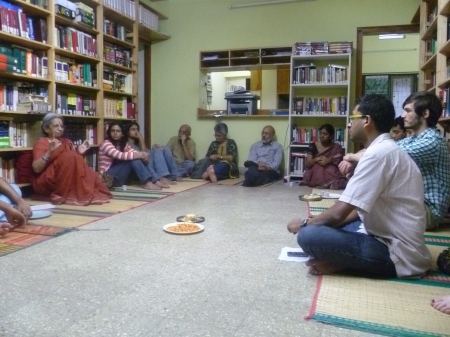The ALF held a thorough discussion on the issue of sexual violence in the context of mass violence. Professor Uma Chakravaty introduced the discussion with an exploration of the situation of sexual violence in India between 1947-2002.
It was argued that during the partition upheavals of 1947 and 1971 the issue of sexual violence was not recognised as being part of the mass violence, which occurred during those struggles. In fact feminist jurisprudence has been very slow in India in recognising rape and sexual violence within the context of mass violence. The communal violence in Gujarat in 2002 was cited as being the dawn of a new epoch in thinking, and sexual violence became recognised as a tool used in violence.
The Professor, sought to redefine and broaden the concept of sexual violence, with the atrocities committed in incidents such as Gujarat in mind. She also argued that there has been effective impunity for many of the perpetrators of sexual violence and saw command responsibility as one way of rectifying this. Command responsibility ensures that officials are held to be responsible if they neglect to intervene in incidents of sexual violence that they know are occurring. Moreover, she argued that crimes of sexual violence should be monitored separately in the PMO’s office.
The Professor’s talk was followed by a discussion. Here, the need for gender neutrality in the law was spoken about at great length. It was argued that if sexual violence is to be adjudged in the wider context of violence then it should affect men and women equally. This view was based on the concept of sexual violence that developed from the Rwandan genocide in which it was argued that rape was used not just to degrade the individual woman, but was aimed to strip the humanity from a community as a whole.
Women’s groups generally resist gender neutrality in the law, as they fear it will reduce protection for women. As it stands in the Sexual Assaults Bill only a man can be a perpetrator of the crime, but women and transgender people can be victims. Many other issues were discussed at length and the minutiae of the laws were assiduously scrutinised. Sichrem volunteers Swaroop and Theodore attended the programme. We look forward to attending the next ALF discussion.

